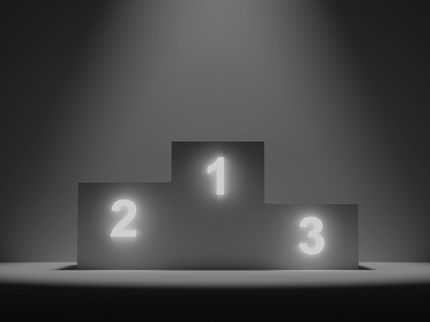2016 Sofja Kovalevskaja Awards granted
Six international research talents to receive up to €1.65 million each
Advertisement
The Alexander von Humboldt Foundation has singled out six international junior researchers between 29 and 44 years of age for one of Germany’s most valuable research awards: the winners will each be granted up to €1.65 million.
With the Sofja Kovalevskaja Award, young researchers receive risk capital for innovative projects during an early stage in their careers. The Sofja Kovalevskaja Award allows them to conduct research at a German university or research institute for a period of up to five years and develop their own research groups at their host institutes. The award is financed by the Federal Ministry of Education and Research.
The Parliamentary State Secretary to the Federal Ministry of Education and Research, Thomas Rachel, and the Secretary General of the Alexander von Humboldt Foundation, Enno Aufderheide, will present the 2016 Sofja Kovalevskaja Awards to the winners in Berlin on 15 November. An invitation to the media will follow.
The recently selected award winners, their respective home country, last country of residence, research area and host institute are:
- Mazhar Ali, USA, Solid-state Physics, Max Planck Institute of Microstructure Physics, Halle/Saale (Host is the Humboldt Professor Stuart Parkin)
- Michal P. Heller, Poland/Canada, Quantum Physics, Max Planck Institute for Gravitational Physics (Albert Einstein Institute), Potsdam-Golm
- Francesco Neri, Italy, Molecular Genetics, Leibniz Institute on Aging, Fritz Lipmann Institute (FLI), Jena
- Faith Osier, Kenya, Medical Microbiology, Heidelberg University Hospital, Heidelberg Centre for Infectious Diseases
- William Shepherd, USA/Denmark, Elementary Particle Physics, Mainz University, Institute of Physics
- Safa Shoai, Iran/Australia, Organic Photovoltaics, University of Potsdam, Institute of Physics and Astronomy
Most read news
Organizations
Other news from the department people

Get the chemical industry in your inbox
By submitting this form you agree that LUMITOS AG will send you the newsletter(s) selected above by email. Your data will not be passed on to third parties. Your data will be stored and processed in accordance with our data protection regulations. LUMITOS may contact you by email for the purpose of advertising or market and opinion surveys. You can revoke your consent at any time without giving reasons to LUMITOS AG, Ernst-Augustin-Str. 2, 12489 Berlin, Germany or by e-mail at revoke@lumitos.com with effect for the future. In addition, each email contains a link to unsubscribe from the corresponding newsletter.






























































